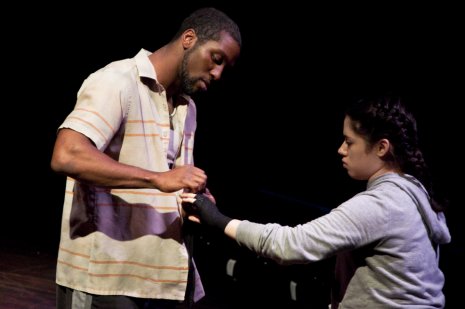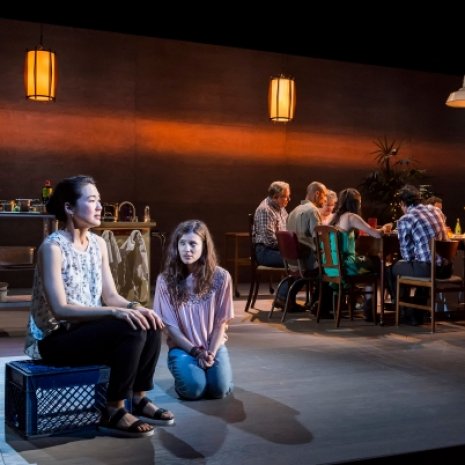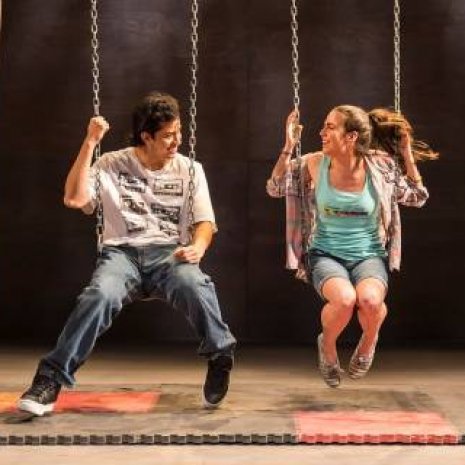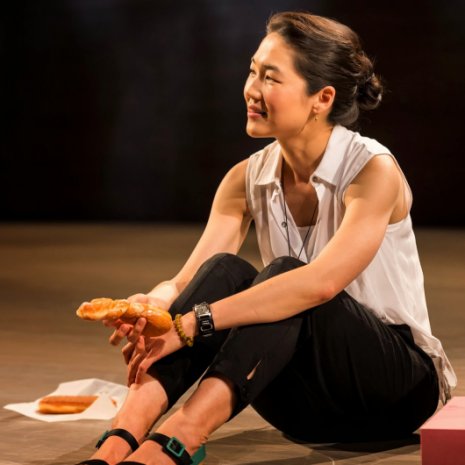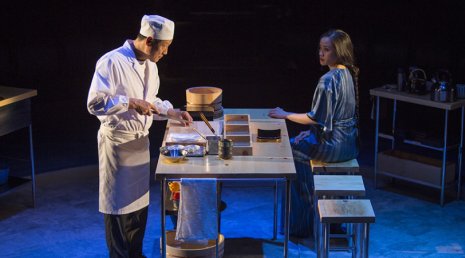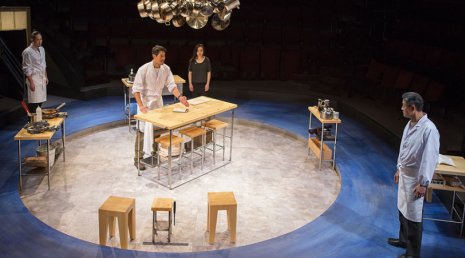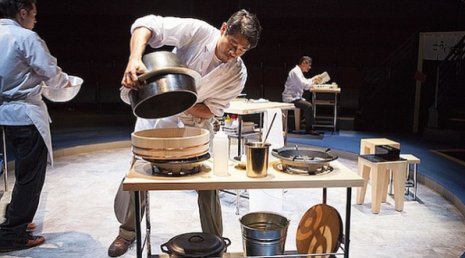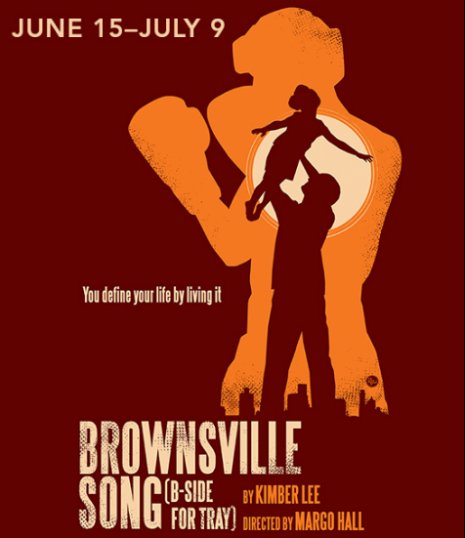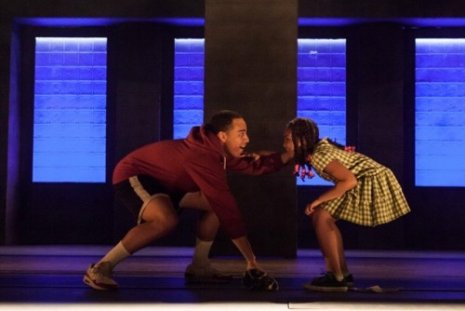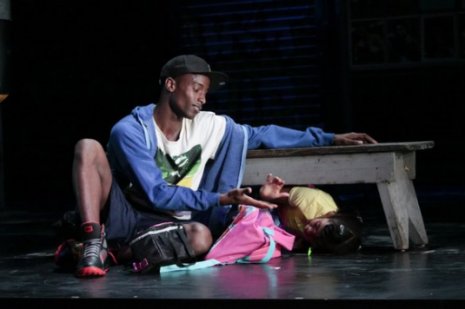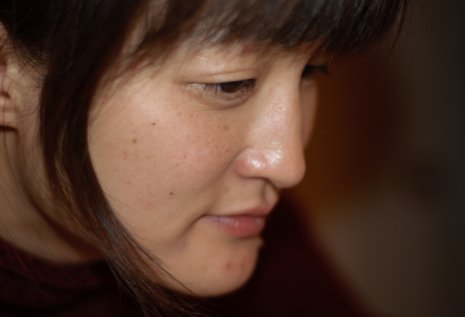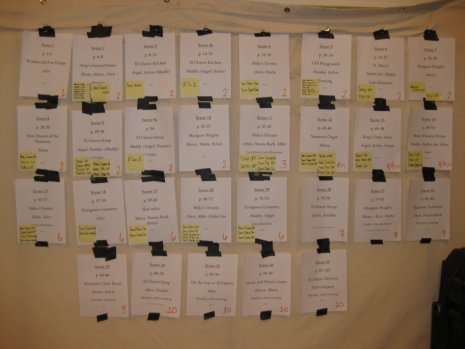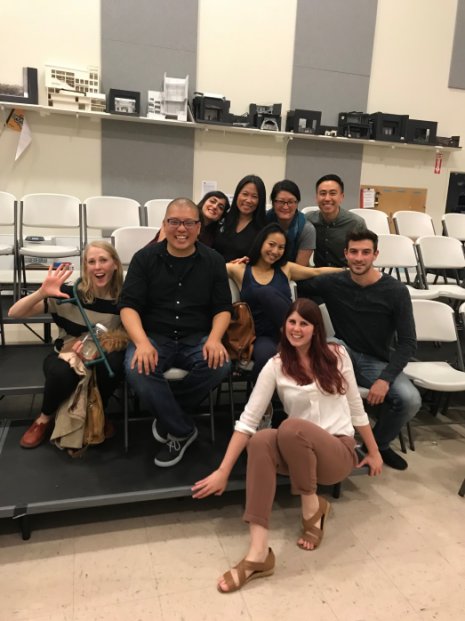In Kimber's Words...
I spent a lot of time alone as a kid growing up in a small farm town in southwestern Idaho, improvising elaborate storylines for my stuffed animals. My narratives usually involved an escape from an orphanage that then required living off the land, making a fort in the woods near our house. I think about my small Korean American self, moving through a world of whiteness, making a fort in the wilderness where I could live. And I've realized that all of the playing, the stories, the narratives I made up as a child were unconscious attempts to be seen, but it wasn't about attention seeking. It was a deep desire to exist in a world that wanted to wipe myself out of myself.
And in recent years I've found myself aggressively curious about form and its functions. Like I wanna break things in my writing. Where ever they seem solid and reassuring I find myself wanting to put a little crack in there, wobble the basis of it all ever so slightly, leveraging ingrained expectations of well-known dramatic structures in such a way that a sudden disruption in that pattern can let in something new, an expansion, an exploding of rigid identities and truths. Maybe the simplest answer is that I feel like I am a crack? Like my existing at all is a break in the usual way of things.
Right now for me, the work and methods of working evolve and morph but what drives me always comes down to what burns at the heart of it all: how do we imagine our way into full-bodied existence? So much of my former life as an actor was erasure, the message sometimes implicit but always clear, “you don't belong in this story, in this place, people who look like you didn't exist here.” Can those of us engaged in the act of world-building for the stage create a set of moments that can be entered into the cultural record? Moments that press their weight into our cultural memory and leave a sign for those who come after: I existed. I was here, and this is what it was like for me, at this time and in this place.
Bringing my plays to the stage over the past decade (in the way that we did it pre-pandemic) has left me with deep questioning about what is really going on in the performing of a play for an audience, the actual human-to human exchange that occurs. The transformative nature of embodied live performance has some beautiful and some troubling effects. The lovely aspects are a huge part of the story we tell ourselves as practitioners: empathy building, a public forum for understanding via the power of stories.
But I'm still trying to process how to work with the more difficult aspects of what I've observed in my produced work: the way in which narrative meaning is chemically and radically altered when a BIPOC story is placed in front of an entirely white audience, the essential differences between bearing witness and observing from a distance (a "watching animals in a zoo" effect), the limited uses and duration of empathy, the compulsive boiling down of complication to pithy truths. Where does that leave us as theatre-makers, if we wish to grapple with the messy complexity of what we are attempting to do when we write? How do we navigate the gap between what we say we are attempting to do, and what we actually end up doing?
The nature of the work is that it resists easy formatting or codification and insists on the leap across a chasm from known to unknown, every time.
I keep trying. I may never quite get across, but my hope is to leave footprints and handprints and marks of my attempts behind so that anyone who passes this way will see evidence: someone came through here. And then maybe they can imagine their way forward faster, become more of themselves, despite everything more freely themselves, more perfectly imperfect and fully human.
VINCENT
One does not always know what he can do
but he nevertheless instinctively feels
I am good for something
My existence is not without reason
I wonder how I can be of use
How can I be of service
There is something inside me
but what can it be
And sometimes the nights are long
But even in the deep misery of those small hours
I keep a tiny flame lit deep inside
It warms me slowly and with the sunrise
I feel my energy revive
and I say to myself
In spite of everything
I will rise again
I will start again
I will take up my pencil
and work
VINCENT picks up his bags and goes out the gate,
walks down a cobbled street.
VINCENT
Dear Theo
Thank you very much for your letter
and for the money which has been so helpful
I did find new lodging
A house
at number 2 Place Lamartine
There is so much room and such good light there
It has been a long time since I lived in a house
not an apartment or dingy rooms over an inn
A house is more of a home
isn’t it
Congratulations on your recent engagement
and I hope that you and Jo will be able to visit once I have made things comfortable
Provence has burst into bloom almost overnight it seems
The color and the light are extraordinary
and I am eager to begin working in earnest once I am settled
I want to do a series of landscapes and capture the variety and color of the vegetation
Spring gives one hope for a new start
VINCENT stops walking.
He stands in front of The Yellow House.
His dusty, grey silhouette in the golden sunset glow, the bright azure of the Provencal sky, the emerald green of the trees along the street.
VINCENT
One does not always know what he can do
but he nevertheless instinctively feels
I am good for something
My existence is not without reason
I wonder how I can be of use
How can I be of service
There is something inside me
but what can it be
And sometimes the nights are long
But even in the deep misery of those small hours
I keep a tiny flame lit deep inside
It warms me slowly and with the sunrise
I feel my energy revive
and I say to myself
In spite of everything
I will rise again
I will start again
I will take up my pencil
and work
Golden hour has resolved into a dusky blue twilight.
VINCENT opens the front door of the yellow house and goes inside.
The night deepens, ghostly images bloom across the stage, fragments of some of the paintings he would do before his death, his most famous work:
the night sky blurs and resolves into the iconic swirls of Starry Night,
the trees take on the dark greens waves of A Wheatfield with Cypresses, etc.,
and the house blurs and resolves into his painting of The Yellow House, with the Café Terrace at Night adjacent around the corner.
A warm yellow light flicks on in the rectangle bedroom window upstairs, and the paintings fade away into the peaceful Arles night: a velvety navy blue night sky, dotted with stars and a bright crescent moon over the hills, dim glow of The Yellow House, dark green leafy trees bending over it, dim light grey sandy cobbled road.
A waft of laughter from the café up the street.
Crickets.
Everything fades slowly to black, color dropping out as the dark covers everything.
Everything except VINCENT’s window, which burns defiantly bright hot yellow into the darkness.
Blackout.
END OF PLAY.


